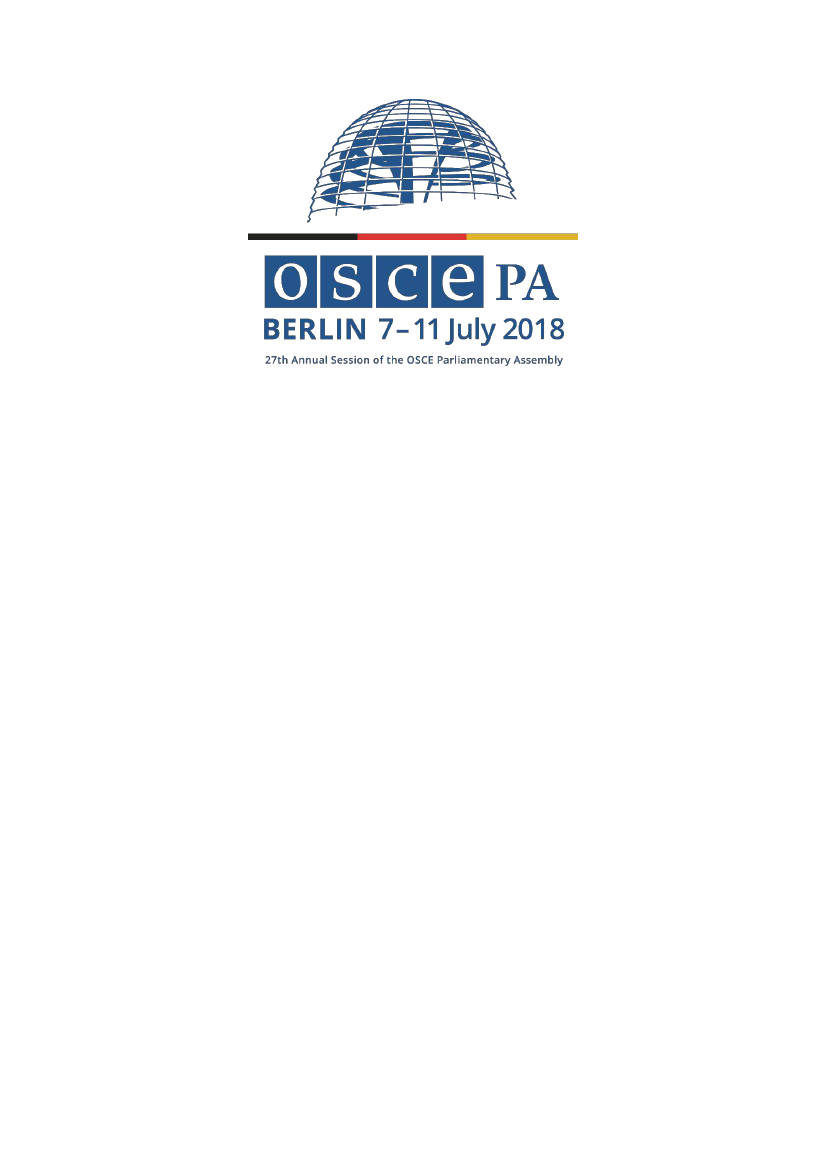
AS (18) RP 2 E
Original: English
REPORT
FOR THE GENERAL COMMITTEE ON
ECONOMIC AFFAIRS, SCIENCE, TECHNOLOGY
AND ENVIRONMENT
Implementing OSCE Commitments:
The Role of Parliaments
RAPPORTEUR
Ms. Sofio Katsarava
Georgia
BERLIN, 7
–
11 JULY 2018